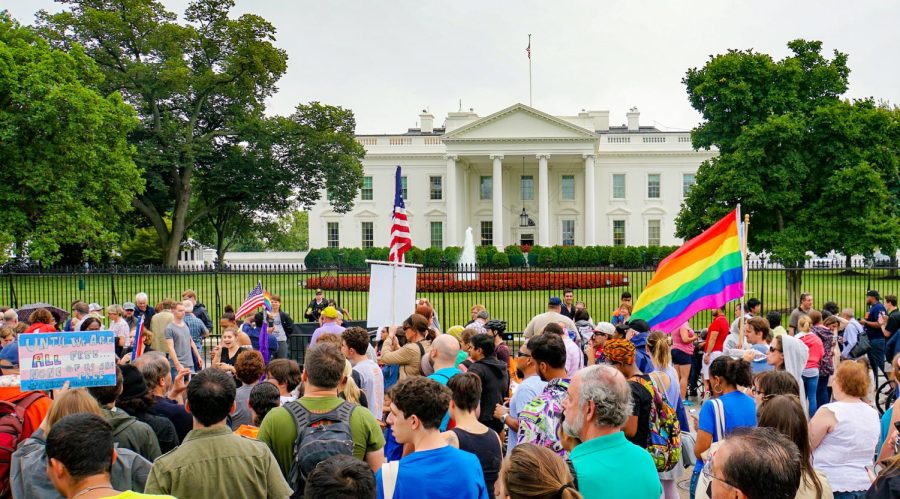A Legal Battle for Transgender Rights Comes to an End
The issue of trans women in girls sports at the high school and college levels seems to have exploded in salience in the past few years. In this year’s midterm elections, several Republican candidates, including Herschel Walker in Georgia, ran ads about the topic. Connecticut has had its own experience in this matter, with a battle on the issue coming to an apparent end just several days ago.
On Friday, December 16, the U.S. Court of Appeals for the Second District ruled that the Connecticut Interscholastic Athletic Conference (CIAC) could continue with a policy that let transgender girls compete on female sports teams.
The CIAC, the governing body for interscholastic sports in Connecticut, adopted the trans-inclusive policy in 2013. In February of 2020, the Alliance Defending Freedom (ADF), a conservative legal group, filed a complaint on behalf of four Connecticut female high school student athletes. The four girls– Selina Soule, Chelsea Mitchell, Alanna Smith, and Ashley Nicoletti –all were cisgender. The complaint aimed to bar two transgender student athletes, Terry Miller and Andrea Yearwood, from competing in 2020’s spring track season. It also asked for an admission that the CIAC’s policy violated Title IX, a 1972 federal law prohibiting sex-based discrimination in federally-funded education. Furthermore, the complaint asked for the records of the two students to be voided.
All four cisgender girls had competed against the two transgender girls at some point during high school, with each of the four having at least one state championship race where they placed top ten with either Miller or Yearwood placed above them. In other races, though, the cisgender girls finished ahead of their transgender competitors, like one 2019 race where Mitchell placed first ahead of both Miller and Yearwood.
The 2020 spring track season was later canceled due to the COVID-19 pandemic, and both Miller and Yearwood graduated later that year. Neither competed in track at the college level. Of the four girls who filed the complaint, three now compete in NCAA Division 1 track programs.
The ADF’s complaint, filed in the U.S. District Court for the District of Connecticut as Soule v. Connecticut Association of Schools, argued that boys were “displacing girls in competitive track events,” and were depriving them of “a chance to be champions.” On April 25th, 2021, a judge dismissed the case, saying the request was “moot” because the transgender athletes in question had already graduated, and the four petitioners were unlikely to have to compete against other transgender students before they graduated high school. However, the judge didn’t address the question of whether the CIAC’s policy violated Title IX or not.
The ADF then appealed the case to the Second District Court of Appeals, where Friday’s ruling in favor of the CIAC was handed down by a panel of three judges. The decision, affirming the district court’s dismissal, agreed with the CIAC’s stance that the actions requested in the complaint would violate Title IX by discriminating against transgender students. The court also found that the petitioners lacked legal standing in the case, as the four girls had competed in multiple state events and won many of them, even sometimes against Yearwood and Miller. “Plaintiffs simply have not been deprived of a ‘chance to be champions,’” the court wrote. Another theory of standing presented that the current CIAC records affect the future employment opportunities of the four girls was thrown out because they had “not established that maintaining the records as they are now will cause future injury to Plaintiff’s employment opportunities.” The decision also commented on whether changing the CIAC’s records would have much impact on future employment for the girls, or whether records can even be altered if all participating athletes conformed to all the rules applicable at the time.
Civil rights groups, including the ACLU, which represented the CIAC in the case, celebrated the ruling. “Today’s ruling is a critical victory for fairness, equality, and inclusion,” said an attorney in a press release from the organization.
So what happens next? The ADF could appeal the case to the Supreme Court. It wouldn’t be the first time ADF has had a case before the Supreme Court concerning LGBTQ+ rights, with the organization arguing in 2018’s Masterpiece Cakeshop v. Colorado and 303 Creative v. Elenis, which was just argued on December 5th. Even if the case is appealed, does not mean the Supreme Court would definitely take it up.
For now, the CIAC’s policy lives to see another day.

Campbell is the News Editor at Prospect. This is Campbell's fourth year with the Prospect staff. Campbell is also on Ludlowe's Ultimate Frisbee team!






![[Protest Tbilisi April 2024] by [Jelger Groeneveld] is licensed under [CC BY 2.0].](https://flhsprospect.com/wp-content/uploads/2025/01/Screenshot-2025-01-29-151213-1-600x449.png)




